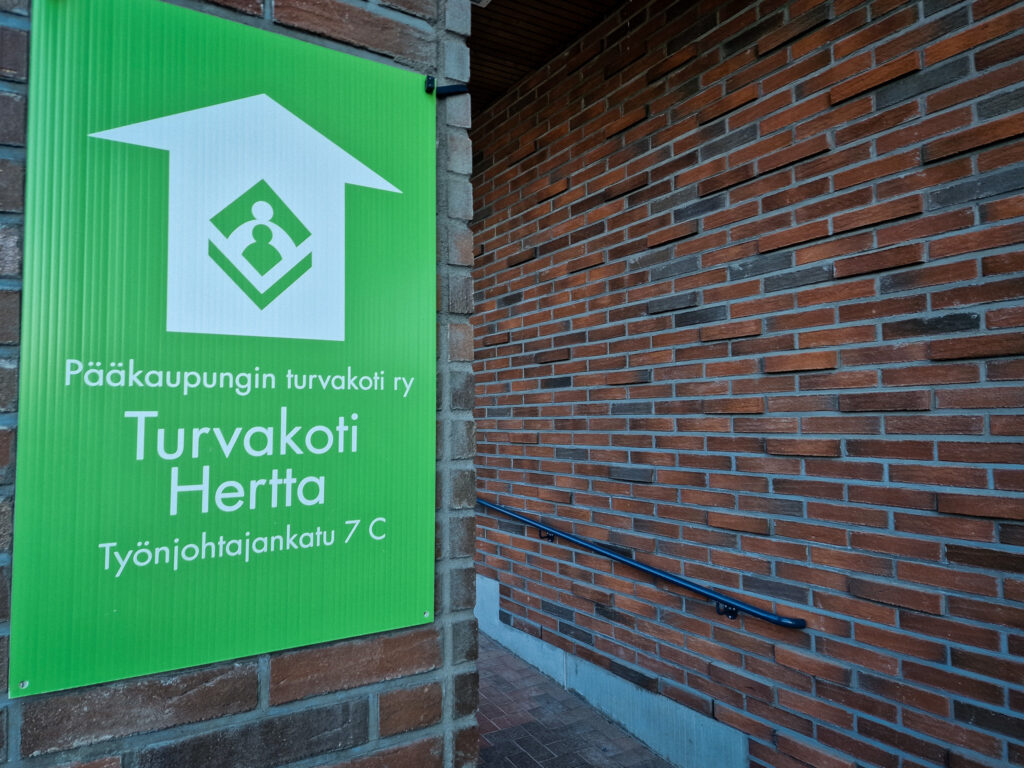Fear of deportation traps immigrant women in abusive marriage

Convincing immigration officials of abuse is often challenging, as they require “hard evidence” like medical and police records. PHOTO: ADOBE STOCK
Seblewongel Tariku
Published 30.05.2024 at 9:12
Updated 05.06.2024 at 11:34
Elva was in a family shelter when the immigration service canceled her residence permit application. According to her, the decision was based solely on a phone call from her abusive husband, who she had escaped fearing for her life. In the phone call, the husband had blamed Elva for using him only as a mean to relocate to Finland.
The immigration service did not inform Elva about the situation. She learned about it only months afterwards, when she received a letter from the police. She was ordered to give up her travel documents to the police station since she was facing deportation.
“The police officer said the law follows the guardian’s wants, and I had to leave the country. There would be nothing they could do about it,” she says.
The immigration service never gave Elva a chance to argue for her side of the story, what is something the Finnish immigration law would require. Her case was dismissed without proper investigation, even though she would have had evidence of the abuse, like a police report, a shelter record, and medical records.
From Elva’s point of view, her residence permit application got canceled just because she reported the abusive behavior of her Finnish-citizen husband.
“I was shocked by the unequal treatment,” Elva says. “It feels like I’m not considered human in Finland, only he is.”
Months of mental and physical abuse by husband
Elva comes from East Africa. She moved to Finland because of her marriage in 2017. Initially, things had seemed fine. The couple started their life together in a small town in Northern Finland.
After a few months, the husband had become mentally and physically abusive. According to Elva, the abuse had escalated from verbal attacks to intense physical violence, like throwing objects and beating.
“I hid bruises on my neck with a scarf when I went to school. I was afraid to tell my neighbours because they were private persons and I didn’t know how the system works here”, she says.
Elva attempted to escape, but her husband locked her up and took her passport and phone. He was also controlling her finances.
But after enduring nine months of abuse, she finally succeeded to flee.
“During an argument, he beat me, but I managed to run away at 5 am and call the police,” said Elva. She was taken to the hospital by the police and then transferred to a family shelter.

For the next four months, Elva lived in different family shelters. She was on depression medication because of suicidal thoughts and took counseling twice a week.
All the time, her husband continued to manipulate her. He pressured Elva not to press charges and plead for family mediation instead. But after the first session, when he had learned that there would be no charges, the husband called the immigration office and filed the divorce papers.
The immigration service doesn’t always recognize domestic violence
Elva’s husband was able to blackmail her because her residence permit was based on marriage.
The law is quite straightforward. If the marriage ends, even a long-term residence permit can be canceled, says Anna-Lena Lindberg, the head of the Immigration and Citizenship Unit at the Finnish Immigration Service. If that happens, the immigrant must find alternative grounds to remain in Finland, or they will be deported.
However, if the marriage ends due to domestic violence, the permit might not be canceled, considering the victim’s difficult situation. The victim can apply for a new permit on grounds of domestic violence, but they must meet specific requirements, and the immigration services will go through the possible indications of violence and abuse.
“Domestic violence doesn’t automatically lead to one result or the other”, Lindberg says.
“We consider all information including both spouses and authorities, like police reports, when making decisions about permit cancellations due to domestic violence”.
The reality of the immigration process can still be challenging for immigrant women. In Elva’s case, immigration officials did not contact her to inform her about the situation. How she could have presented additional information or file for a new permit, if she didn’t even know what was going on?
Lindberg says that she can’t comment on individual cases, but stresses that both spouses should be heard before decisions about permit cancelations and neither of spouses opinion should automatically be given more weight because of Finnish citizenship.
Lack of knowledge makes things more difficult
Elva’s situation is not a particularly rare one. For instance, the Crisis Center at MONIKA, Multicultural Women’s Association, Finland, received 500 victims of domestic violence during 2023, of which 25 percent were by immigrant women married to Finnish citizens.
If the family has children, the leverage of an abusive spouse can be even stronger. They can threat that if the abused partner takes action, they will be deported but their children would remain in Finland.
Many immigrant women don’t know about their rights, and are often dependent on their spouses, even in situations, where abuse is involved, says Anita Novitsky, a Family Intervention Clinician and Multiculturalism Specialist at the Family Federation of Finland.
It’s also often hard to convince the immigration officials that there really has been abuse. The officials require “hard evidence”, such as medical records. According to Novitsky, when it’s only his words against hers, immigration officials tend to believe the husband more easily.
However, as Elva’s case proves, things can be difficult for immigrant women even though they have hard evidence.
Another problem is that the immigration officers and social workers often overlook non-physical forms of violence, Novitsky says. Even victims themselves might not recognize all forms of sexual, economic, and emotional abuse.
Novitsky also recognizes institutional racism in immigration services. Immigrants often face suspicion about their truthfulness and intentions. This skepticism complicates recognition and addressing abuse.
“All in all, it is challenging for the women to convince the officials that there’s been abuse,” she says. “This often results in residency permits being canceled, despite the possibility of domestic violence.”
She stressed that immigration officers should focus on the human aspect and the severe impact of deportation on women and children, rather than just legal aspects.
A happy ending for a long struggle
Elva’s story eventually had a happy ending. With help of people around her, she was able to find a lawyer, who helped her to appeal her deportation and win the case in court.
She is grateful for the support she got from individual police officers, social workers, and her boss, who offered her a permanent contract to help her case.
After nearly a year of struggle, Elva finally got a work-based resident permit.
“It took a long time from the immigration, even though the court had ruled in my favor”, Elva says now.
“This only happened after I called them because my passport was about to expire, and I needed to travel to renew it.”
The name of Elva was changed due to sensitivity of the issue.